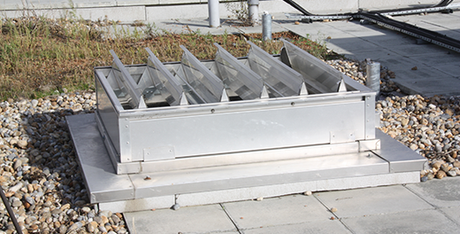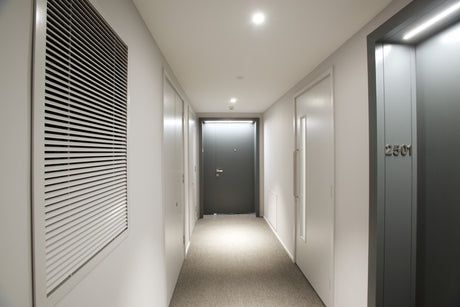If you are a property owner or developer, ensuring that you have the most effective control system in place for your smoke ventilation is vital. When choosing the best control system for smoke ventilation in your building, you will be faced with a number of options, offering different benefits and conflicting advice on each approach. In this article we look at some of the factors you should consider when choosing the controls for your smoke ventilation system.
Before we look at these, it's important to identify the key features that are required to provide effective smoke ventilation in your building. These will be unique to the building and will help you make your decision on the right smoke control unit for your application.
Real-time monitoring
The system should be monitoring in real time, reporting issues and failures, and acting upon feedback from sensory components.
Reliability
Make sure the control panel is highly reliable, with features such as an uninterrupted power supply.
Integrity
The control unit should monitor all the communications between components within the system, but also the components themselves. Warnings should be issued in the event of a failure or revert to a default failsafe.
Compartmentation
The control unit should be able to compartmentalise actions, only operating components in an affected area of the building.
Cause & effect
The control units should retain cause and effect and follow the procedure for the given input. It's crucial that the control panel acts upon the first input and that all subsequent events are locked out.
Override
There should be functionality to override the operation of the system. This could involve, activating, stopping, restarting or changing the mode of the operation.
Damper Control Panel
Inbuild lead the way in smoke control and our Damper Control Panel system offers addressable, intelligent control to BS:5839 standards.
The Damper Control Panel control unit offers complete flexibility by combining all the building's fire systems into a single loop. With complete control, the Damper Control Panel can manage and monitor all the smoke ventilation systems in play. It can activate components such as alarms and sprinklers, and receive information from building sensors in order to operate the required smoke ventilation component.
Damper Control Panel boasts state-of-the-art monitoring and its open protocol allows for the extension of the smoke ventilation system. It is also compatible with a wide range of systems and components from a range of manufacturers.
Take a look at the Damper Control Panel control unit today, a robust solution that is fast becoming the go-to control panel for smoke ventilation systems.







